Austin Auto Repair Blog

Transmission fluid plays a critical role in keeping your vehicle running smoothly by lubricating internal components, maintaining proper pressure, and preventing overheating. When a leak develops, performance can quickly suffer and lead to serious transmission damage if left unaddressed. Because transmission issues are often expensive to repair, recognizing early warning signs of a fluid leak can save you money and stress. At Austin Auto Repair, our local mechanics provide expert transmission fluid leak repair in the greater Austin, TX area. Here are four warning signs that your vehicle may be leaking transmission fluid. Puddles or Stains Under Your Vehicle One of the most obvious signs of a transmission fluid leak is finding a puddle or stain underneath your car after it has been parked. Transmission fluid is typically reddish when new, though it may darken as it ages. Any unexplained fluid beneath your vehicle should be inspected promptly. Delayed or Slipping Gear Shifts Low transmission fluid levels caused by a leak can interfere with proper gear engagement. You may notice hesitation when shifting, rough transitions between gears, or the transmission slipping out of gear altogether. These symptoms indicate that the transmission is not receiving enough hydraulic pressure to operate correctly, which can worsen quickly without professional attention. Burning Smell While Driving A burning odor coming from your vehicle can be a sign that leaking transmission fluid is overheating. When fluid levels drop, friction increases inside the transmission, causing excessive heat buildup. This warning sign should be addressed immediately to prevent severe internal damage. Unusual Noises During Acceleration or Shifting Grinding, whining, or humming noises while accelerating or changing gears can indicate insufficient transmission fluid due to a leak. Proper fluid levels help cushion and lubricate moving parts, so when fluid is low, metal components may begin to harshly rub together. These noises often signal that internal wear is already occurring. Transmission Repair in Austin, TX When you need auto repair in Austin and the surrounding area, contact Austin Auto Repair at 512-865-6217 . Feel free to give us a call to schedule an appointment!
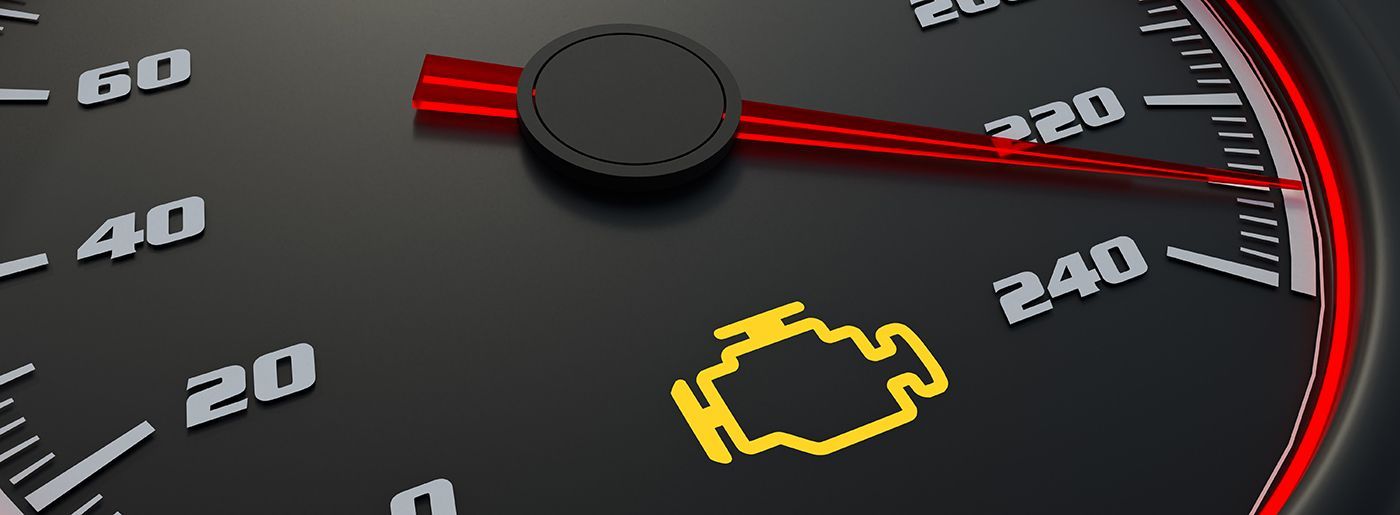
Few things grab a driver’s attention like the sudden glow of the check engine light. While it may be tempting to ignore it—especially if your car seems to be running fine—this warning light is your vehicle’s way of telling you something isn’t right. The issue could be minor, or it could be the first sign of a more serious problem developing under the hood. The important thing is to get the issue diagnosed ASAP. At Austin Auto Repair, we provide expert check engine light diagnostics and repair in the greater Austin, TX area. Here are four of the issues most frequently responsible for triggering this dashboard alert. Faulty Oxygen Sensor Your oxygen sensor measures the amount of unburned oxygen in the exhaust system and helps regulate fuel efficiency. When it fails, your engine may burn more fuel than necessary, reducing gas mileage and increasing emissions. A faulty oxygen sensor is one of the most common reasons the check engine light turns on. While the car may continue to run, ignoring this issue can eventually damage the catalytic converter, which is far more expensive to replace. Failing Catalytic Converter The catalytic converter plays a crucial role in reducing harmful emissions from your vehicle. When it begins to fail, the check engine light will likely illuminate. A failing catalytic converter can cause poor fuel-economy, reduced performance, and increased emissions. Malfunctioning Ignition Coils or Spark Plugs Ignition coils and spark plugs are essential for starting your engine and keeping it running smoothly. When they wear out or malfunction, they can cause misfires, rough idling, and reduced power. These problems frequently trigger the check engine light. Replacing spark plugs is usually an easy and inexpensive fix, while coil replacement may cost more. Either way, quick action helps prevent further engine trouble. Problems With the Mass Airflow Sensor The mass airflow (MAF) sensor measures how much air enters the engine, helping the computer determine the correct amount of fuel to inject. If the MAF sensor becomes dirty or fails, your engine may run rich or lean, causing poor performance and reduced fuel-economy. A faulty MAF sensor often triggers the check engine light, and replacing it promptly helps ensure smooth engine operation. Check Engine Light Repair in Austin, TX For expert check engine light diagnostics and repair in Austin and the surrounding area, contact Austin Auto Repair at 512-865-6217 . Feel free to give us a call to make an appointment!
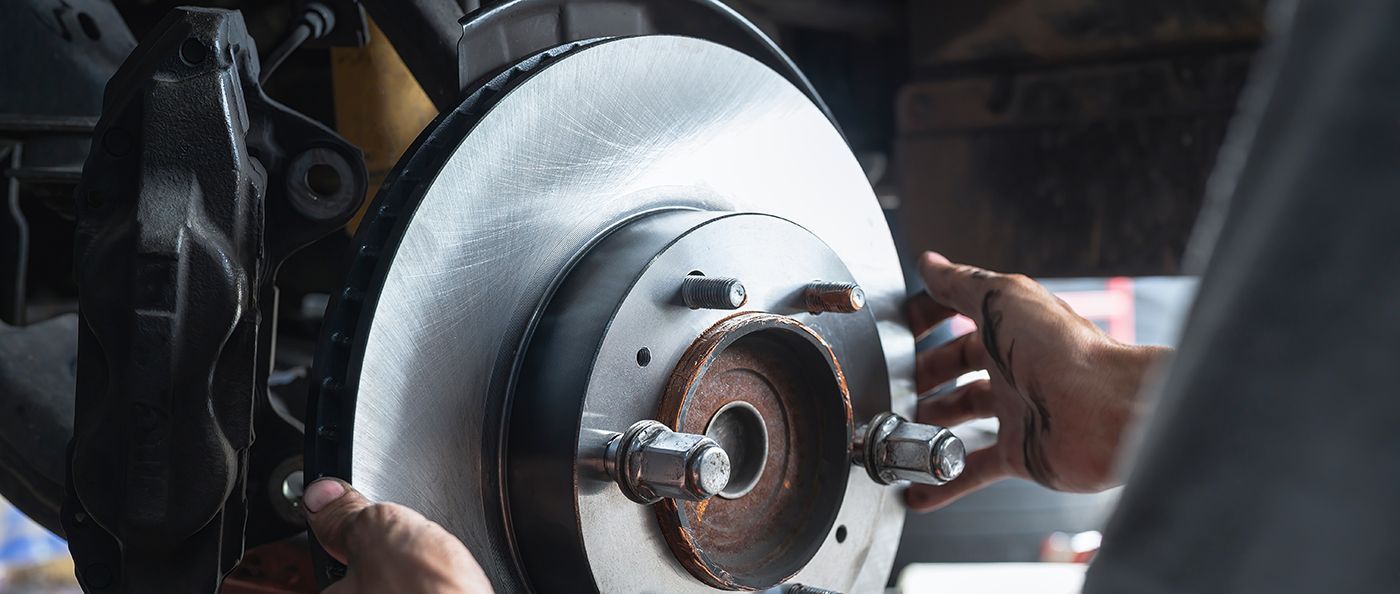
Your car’s braking system is one of its most important safety features, responsible for bringing your vehicle to a quick and controlled stop. Over time, brake components wear down and can begin to show warning signs of trouble. Ignoring these symptoms can lead to unsafe driving conditions and more expensive repairs. At Austin Auto Repair, we provide expert brake repair in the greater Austin, TX area. Here are four common symptoms of brake trouble. Squealing or Grinding Noises One of the most noticeable signs of brake trouble is strange noises when you press the brake pedal. A high-pitched squealing sound often indicates that your brake pads are worn and the built-in wear indicator is alerting you it’s time for replacement. If you hear a grinding noise, it could mean the brake pads have worn completely down and metal-on-metal contact is occurring with the rotors. This not only reduces braking power, but can also cause rotor damage if ignored. Spongy Brake Pedal When your brake pedal feels soft or sinks toward the floor easily, it’s a strong sign of a problem within the hydraulic brake system. Air in the brake lines or low brake fluid—potentially due to a leak—could be the cause. This issue reduces braking efficiency and can be extremely dangerous because it limits your ability to stop quickly. Any change in pedal firmness should be checked by a professional right away to ensure your brakes are functioning properly. If you suspect a brake fluid leak, it’ll be best to get towed to the shop to avoid safety hazards. Vibrations When Braking Vibrations when you slow down may be due to warped brake rotors. Over time, excessive heat and wear can cause the rotors to lose their smooth surface, resulting in uneven contact between the pads and rotors. This creates a pulsating sensation that can affect braking performance. Resurfacing or replacing the rotors usually resolves this issue and restores smooth braking. Pulling to One Side A car that pulls to one side when braking could indicate a stuck caliper, perhaps as a result of corrosion. This can make handling unpredictable and create serious safety risks. Brake Repair in Austin, TX For auto repair in Austin and the surrounding area, contact Austin Auto Repair at 512-865-6217 . Feel free to give us a call to make an appointment for car care in greater Austin, TX!
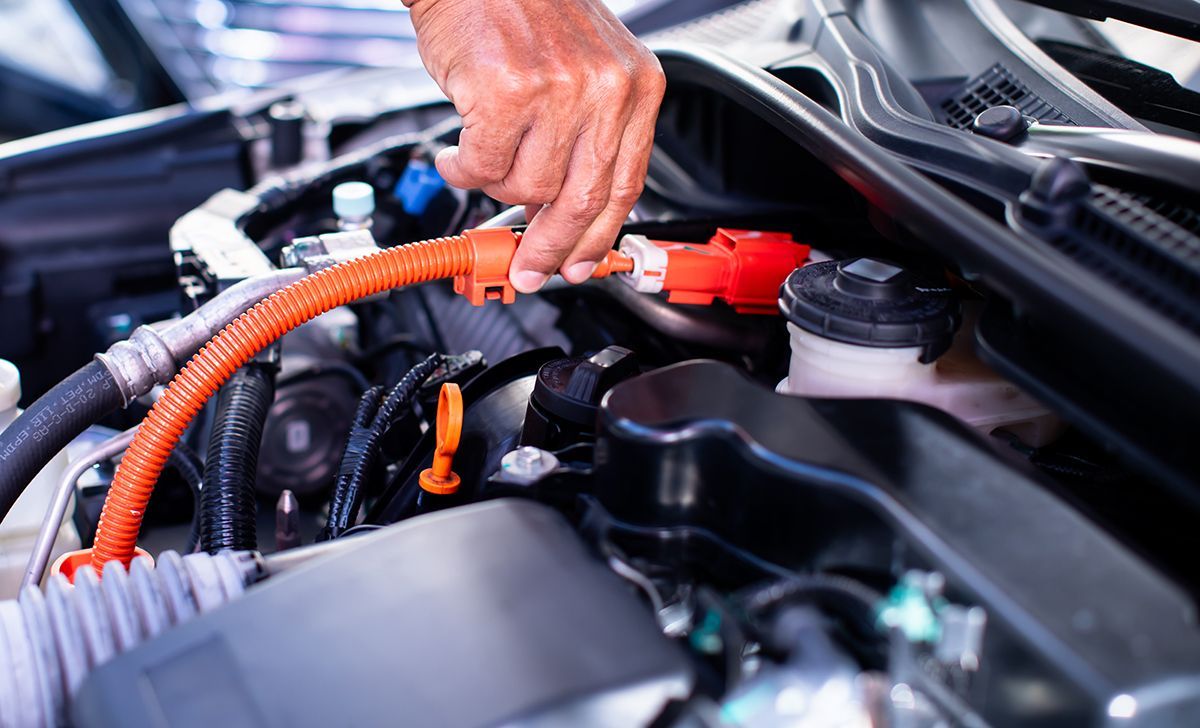
An overheating engine is one of the most alarming problems a driver can face. When the temperature gauge climbs into the red or steam starts rising from under the hood, it’s a clear sign that something is wrong. Ignoring engine overheating can lead to warped components, blown head gaskets, and even total engine failure. To prevent serious damage, it’s important to understand what causes overheating and address issues early. At Austin Auto Repair, we provide expert cooling system repair in the greater Austin, TX area. Here are four common reasons that car engines overheat. Low Coolant Levels Coolant is essential for regulating engine temperature. It circulates through the engine, absorbing heat and transferring it to the radiator, where it’s released. If your vehicle’s coolant level is too low due to leaks, the system can’t effectively remove heat. Without enough coolant, temperatures rise quickly, leading to overheating. Checking and maintaining proper coolant levels (while the engine is cool) is one of the simplest ways to protect your engine. Failing Water Pump The water pump is responsible for circulating coolant throughout the cooling system. If it fails, coolant flow becomes restricted. Without proper circulation, the engine can quickly overheat. Signs of a bad water pump include grinding and whining noises, as well as coolant leaks. Clogged or Damaged Radiator The radiator releases heat from the coolant into the air, keeping the engine’s temperature in check. Over time, debris can clog the radiator, reducing its ability to dissipate heat. Physical damage, such as bent fins or leaks, can also impair performance. Regular maintenance, including flushing the cooling system and checking for blockages, helps ensure your radiator operates efficiently. Faulty Thermostat The thermostat plays a key role in controlling the flow of coolant through the engine. When functioning properly, it opens and closes to maintain the correct operating temperature. If it becomes stuck closed, coolant can’t circulate, trapping heat inside the engine. A faulty thermostat is a common cause of overheating and should be replaced as soon as it’s diagnosed. Cooling System Repair in Austin, TX When you need auto repair in Austin, TX and the surrounding area, contact Austin Auto Repair at 512-865-6217 . At our local auto shop, we can expertly address your car’s repair and maintenance needs. Feel free to give us a call to make an appointment for car care in Austin!

Your car’s suspension system is designed to provide comfort, stability, and control while driving. A key part of that system is the shocks, which help absorb the impact of bumps and uneven surfaces. When shocks wear out, your car’s performance and safety can suffer significantly. Recognizing the warning signs early can help you avoid bigger repair costs and dangerous driving conditions. At Austin Auto Repair, we provide expert suspension repair in the greater Austin, TX area. Here are four signs that it may be time to replace your shocks. Excessive Bouncing After Bumps If your car continues to bounce after hitting a bump or dip in the road, it’s a clear sign that your shocks aren’t doing their job. Healthy shocks should quickly stabilize your vehicle after an impact. Persistent bouncing not only makes for an uncomfortable ride, but can also reduce your ability to maintain control, especially on rough roads. Nose Diving During Braking If the front of your car dips noticeably when you hit the brakes, it’s a strong indication that your shocks are worn. This issue, known as nose diving, can increase your stopping distance and compromise your ability to avoid collisions. Effective shocks help distribute the weight of your vehicle evenly during braking, keeping your car level and stable. Uneven Tire Wear When shocks are worn out, they can’t keep your tires firmly and evenly planted on the road. This often leads to uneven tire wear. If you notice bald spots or irregular patterns on your tires, your shocks could be the culprit. Fluid Leaks on the Shocks Shocks contain hydraulic fluid. If you notice fluid leaking down the side of a shock absorber, it’s a sign that a seal has failed and the shock can no longer function properly. Driving with leaking shocks compromises both ride comfort and safety, making immediate replacement necessary. Suspension Repair in Austin, TX For expert auto repair in Austin and the surrounding area, contact Austin Auto Repair at 512-865-6217 . Feel free to give us a call to schedule an appointment!
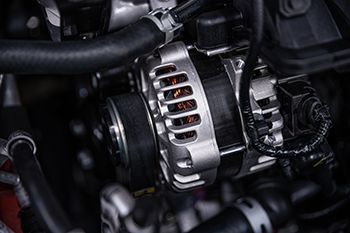
Your car’s alternator plays a critical role in keeping the battery charged and powering the vehicle’s electrical systems while the engine is running. Without a functioning alternator, the battery quickly loses its charge, leading to a stalled vehicle or a car that won’t start at all. While alternators are built to last, they do wear out over time. Catching the warning signs early can save you from being stranded. At Austin Auto Repair, we provide expert alternator replacement and auto electric repair in the greater Austin, TX area. Here are four warning signs that your alternator may be failing and should be replaced soon. Dashboard Warning Light Most modern vehicles have a dashboard warning light that signals a problem with the charging system. This light is often shaped like a battery or says ALT or GEN. If this warning appears while you're driving, it’s a clear indication that the alternator may not be charging the battery properly. Even if your car seems to be running fine, the battery may soon run out of power, so the issue should be diagnosed as soon as possible. Strange Noises A failing alternator may produce unusual noises such as whining, grinding, or squealing. These sounds often come from worn-out bearings or a slipping serpentine belt, both of which can affect the alternator’s ability to function. If you hear these noises coming from that area of the engine, it’s a good idea to have a mechanic check the alternator and surrounding components before the problem worsens. Dimming/Flickering Lights If your headlights or interior lights begin to dim or flicker while driving, it could mean the alternator isn’t supplying enough power. Consistent lighting is a key indicator of a healthy charging system, so any change should be checked out promptly. Electrical Accessory Failures When the alternator begins to fail, it can’t provide enough power to run all of the car’s electrical systems. This may result in malfunctioning accessories such as power windows, heated seats, or the stereo. These types of electrical glitches often point to an alternator that’s no longer performing as it should. Alternator Replacement & Auto Electric Repair in Austin, TX For expert auto repair in Austin and the surrounding area, contact Austin Auto Repair at 512-865-6217 . Feel free to give us a call to schedule an appointment!
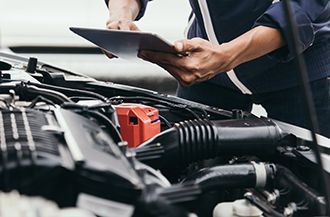
When you turn the key or press the ignition button and your car hesitates—or doesn’t start at all—it can be both frustrating and concerning. An engine that struggles to start is often a warning sign that something under the hood isn’t working properly. While some issues may be minor and easy to fix, others could indicate more serious problems that need professional attention. At Austin Auto Repair, our local ASE-certified mechanics are experts at identifying and resolving problems that cause no-start. Here are four common reasons that car engines struggle to start up. Weak or Dead Battery The battery provides the electrical power needed to start your car. If it’s weak, drained, or dead, the engine may crank slowly or not at all. Cold weather, old age, or leaving the lights on overnight can all contribute to battery failure. Jump-starting the car might get you going temporarily, but a weak battery should be replaced as soon as possible. Failing Starter Motor The starter motor is responsible for turning the engine over when you initiate ignition. If the starter motor is worn out or failing, the engine may struggle to crank or make unusual grinding noises. In some cases, nothing may happen at all when you try to start the car. A faulty starter is a mechanical issue that generally requires immediate repair or replacement to restore reliable engine performance. Fuel Delivery Issues An engine needs the right amount of fuel to start and run. If there’s a problem with the fuel pump or a clogged fuel filter, the engine may crank but fail to fire up. Fuel system problems can range from minor clogs to more serious component failures, but all should be checked promptly. Worn Spark Plugs or Ignition System Components Spark plugs provide the spark that ignites the air-fuel mixture in the engine’s cylinders. If the plugs are worn or fouled, or if other ignition components like coils or wires are damaged, the engine may crank but not start. Regular maintenance helps prevent these issues, but if your engine struggles to start, inspecting the ignition system is a good place to begin. Auto Repair in Austin, TX When you need auto repair in Austin, TX and the surrounding area, contact Austin Auto Repair at 512-865-6217 . Feel free to give us a call to schedule an appointment!
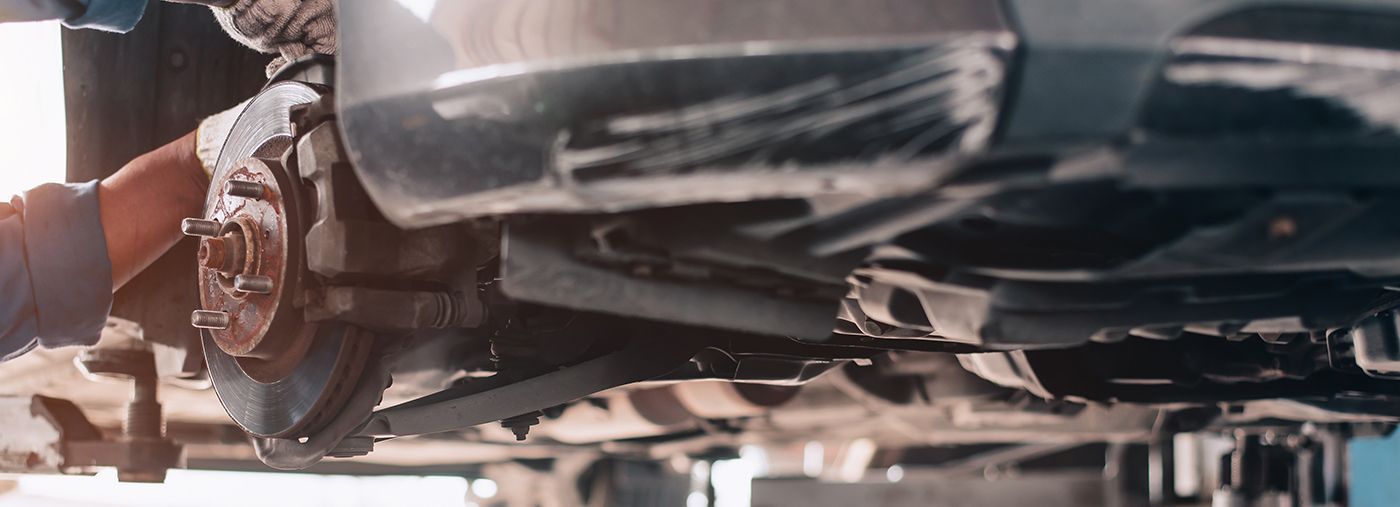
Your vehicle’s suspension system plays a vital role in maintaining control and comfort. It absorbs road shock, supports proper tire contact with the pavement, and helps ensure safe handling while driving. When parts of the suspension begin to fail, it can lead to unsafe driving conditions and further mechanical damage. Addressing suspension problems early is highly important. At Austin Auto Repair , we provide expert suspension repair in the greater Austin, TX area. Here are four common suspension issues that should be addressed ASAP. Excessive Bouncing After Hitting Bumps If your vehicle continues to bounce after hitting a pothole or bump, your shocks or struts may be worn out. These components are designed to absorb impact and stabilize the car. When they begin to fail, the car may feel like it’s bouncing excessively, especially at higher speeds or on uneven roads. This not only reduces ride comfort but also affects your ability to control the vehicle in emergency situations. Uneven Tire Wear When your suspension system isn’t functioning properly, it can cause your tires to wear unevenly or more quickly than usual. Worn-out suspension components can lead to misaligned wheels or improper contact with the road surface. This results in uneven tread wear, which compromises traction and handling. If you notice unusual tire wear patterns, it’s important to have your suspension inspected and corrected before the tires become unsafe to drive on. Pulling to One Side While Driving If your vehicle pulls to the left or right while driving on a straight road, it may indicate a suspension or alignment issue. While alignment problems can sometimes be fixed with a simple adjustment, worn suspension parts such as control arms, ball joints, or bushings can also be the culprit. Pulling to one side reduces your control over the vehicle and increases the risk of accidents. Clunking or Creaking Noises Strange noises when going over bumps, turning, or braking often signal a suspension issue. These sounds can come from worn-out bushings, loose ball joints, or other components. Ignoring these noises may allow the problem to worsen and can result in broken parts or damage to connected systems. A suspension that makes unusual sounds should be checked immediately. Suspension Repair in Austin, TX When you need auto repair in Austin and the surrounding area, contact Austin Auto Repair at 512-865-6217 . Feel free to give us a call to schedule an appointment !

Sticking to your vehicle’s recommended oil change schedule is one of the simplest and most effective ways to protect your engine and keep your car running smoothly. While it might be tempting to stretch out the time between oil changes, doing so can lead to serious consequences. At Austin Auto Repair, we provide full-service oil changes in the greater Austin area. Here are four reasons why it’s important to always follow your oil change schedule. Protects Your Engine from Premature Wear Motor oil lubricates the moving parts inside your engine, reducing friction and preventing excessive wear. Over time, oil breaks down and loses its ability to provide proper lubrication. If you skip scheduled oil changes, the oil becomes dirty and less effective, potentially causing internal engine components to grind against each other. This can result in accelerated wear, costly repairs, and even engine failure. Reduces the Risk of Overheating Oil plays a crucial role in temperature regulation inside the engine. It absorbs and disperses heat generated by internal combustion and friction between engine parts. When oil breaks down or becomes contaminated, it can’t regulate temperature effectively, increasing the risk of overheating. Following your oil change schedule helps ensure your engine stays properly cooled, preventing costly damage from excessive heat. Preserves Your Vehicle’s Longevity and Value Consistent oil changes are one of the most important things you can do to extend the life of your vehicle. An engine that runs with clean, properly lubricated oil experiences less wear and tear, meaning it can serve you more reliably for many years. And if you ever plan to sell your vehicle, a documented history of regular oil changes shows buyers that the car has been well-maintained, helping you get a better resale value. Helps Improve Fuel-Efficiency Old, dirty oil makes your engine work harder. As oil thickens and loses its ability to reduce friction, the engine must use more energy to perform the same tasks. This increased effort translates to reduced fuel-efficiency. By keeping your oil fresh and clean, your engine can run more smoothly and efficiently, helping you get more miles per gallon and saving you money at the pump. Full-Service Oil Change in Austin, TX When you need auto maintenance in Austin and the surrounding area, contact Austin Auto Repair at 512-865-6217 . Feel free to give us a call to make an appointment!


